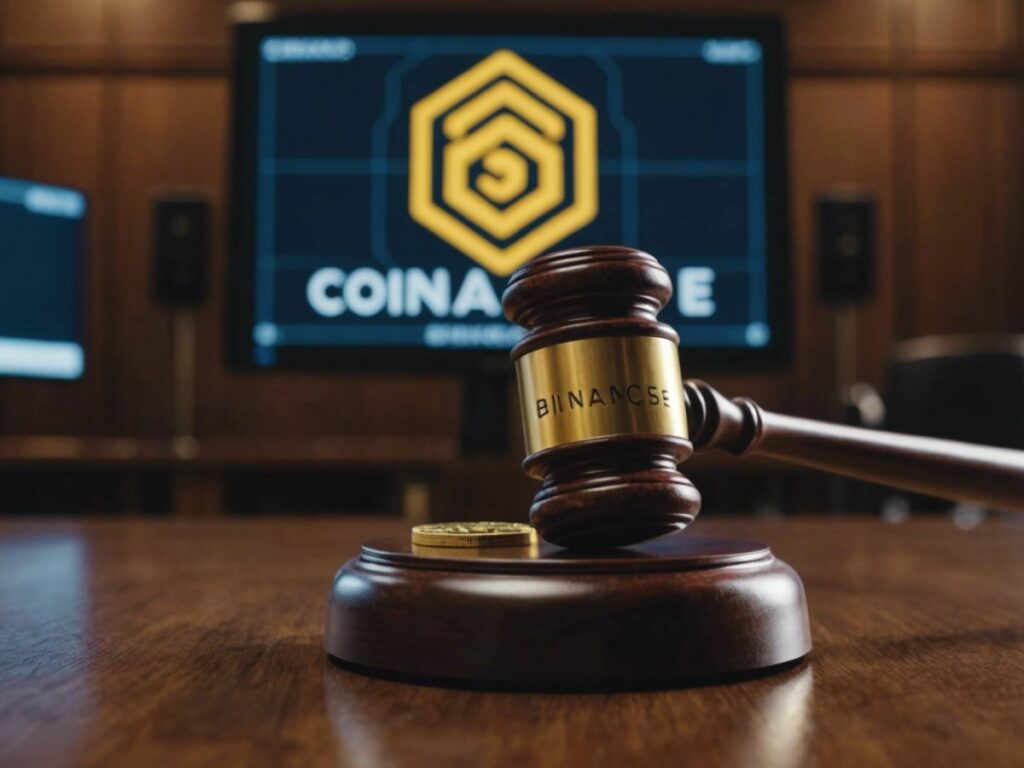In 2023, the U.S. Securities and Exchange Commission (SEC) initiated lawsuits against the world’s three largest crypto exchanges – Binance, Coinbase, and Kraken – marking the beginning of a stringent regulatory era for the crypto industry. These lawsuits have significant implications for the future of cryptocurrencies and their regulation in the United States.
Key Takeaways
- The SEC has filed lawsuits against Binance, Coinbase, and Kraken, accusing them of various regulatory violations.
- The lawsuits could transform the crypto market by asserting the SEC’s jurisdiction over the industry.
- The SEC has identified several cryptocurrencies as securities, which could lead to their delisting from U.S. exchanges.
SEC vs. Binance: Accusations and Consequences
On June 5, 2023, the SEC filed a lawsuit against Binance, accusing the exchange of several violations, including running an unregistered exchange, selling Binance-owned cryptos BNB and BUSD, and using customer funds for its own interests. The SEC is also investigating whether Binance used U.S. customer funds similarly to the now-defunct FTX exchange.
Binance has responded by filing a motion to dismiss the lawsuit. However, the case is expected to extend into 2024. In November 2023, Binance agreed to pay $4.3 billion in fines to settle charges from the U.S. Department of Justice (DoJ), Commodity Futures Trading Commission (CFTC), and Financial Crimes Enforcement Network (FinCEN). As part of the settlement, Binance’s CEO Changpeng Zhao stepped down, and Richard Teng was appointed as the new CEO.
SEC vs. Kraken: Similar Allegations
On November 20, 2023, the SEC filed a complaint against Kraken, accusing the exchange of operating as an unregistered securities exchange, broker, dealer, and clearing agency. The SEC also alleged that Kraken commingled customer funds for operating expenses. Kraken has denied the charges and intends to defend itself in court.
SEC vs. Coinbase: Compliance Issues
A day after the Binance lawsuit, the SEC charged Coinbase with operating as an unregistered securities exchange, broker, and clearing agency. The SEC also took issue with Coinbase’s staking-as-a-service program and its marketing campaigns that positioned the exchange as compliant with regulations. Coinbase has responded by stating that it attempted to register parts of its business with the SEC but faced a lack of cooperation from the regulator.
Cryptocurrencies Identified as Securities
The SEC has identified several cryptocurrencies as securities in its lawsuits against Binance and Coinbase. These include:
- Binance vs. SEC lawsuit: Solana (SOL), Cardano (ADA), Polygon (MATIC), Filecoin (FIL), Cosmos (ATOM), Sandbox (SAND), Decentraland (MANA), Algorand (ALGO), Axie Infinity (AXS), Coti (COTI)
- Coinbase vs. SEC lawsuit: Solana (SOL), Cardano (ADA), Polygon (MATIC), Filecoin (FIL), Sandbox (SAND), Axie Infinity (AXS), Chilliz (CHZ), Flow (FLOW), Internet Computer (ICP), Near (NEAR), Voyager (VGX), Dash (DASH), Nexo (NEXO)
Market Reactions and Future Implications
Despite the lawsuits, the cryptocurrency market has shown resilience. Bitcoin (BTC) and Ether (ETH) rebounded quickly from initial sell-offs. However, cryptocurrencies identified as securities by the SEC, such as BNB, ADA, SOL, MATIC, and ATOM, experienced selling pressure.
The lawsuits have sparked discussions about the future of crypto regulation. Some experts believe that U.S. crypto companies may move offshore to avoid stringent regulations. There is also a preference within the industry for cryptocurrencies to be regulated by the CFTC rather than the SEC.
Conclusion: The Inevitable Regulation of Cryptocurrencies
The SEC’s actions against Binance, Coinbase, and Kraken signify a critical juncture for the crypto industry. While the lawsuits may lead to stricter regulations, they also offer an opportunity for the industry to emerge stronger and more compliant. The future of cryptocurrencies in the U.S. will depend on the outcome of these legal battles and the regulatory frameworks that follow.
Sources
- SEC vs Binance, Coinbase, Kraken Lawsuits Usher Tough New Era, Techopedia.
- US tightens crackdown on crypto with lawsuits against Coinbase, Binance | Reuters, Reuters.
- Binance, Coinbase head to court; the SEC labels 67 crypto-securities, Cointelegraph.
- Full List of Cryptos Named Securities in SEC Lawsuits, BeInCrypto.
- US SEC Cites Terraform Case in Coinbase, and Binance Rulings, Cryptonews.

